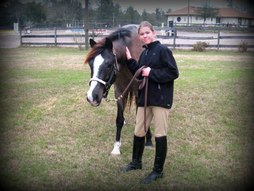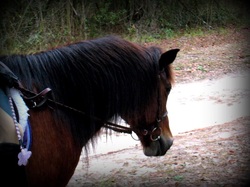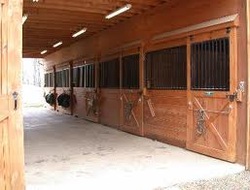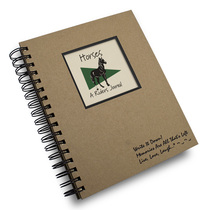 I've been thinking about doing this article for a while. I know I'm young, but I'm pretty sure that I'm a fairly good horse owner. I'm not saying I know everything, or that I'm the best, but I know enough for now at least. Patience, is the main thing for any horse owner. Horses are unpredictable animals, and if anything goes wrong, your part to play is to be patient and deal with your horse in a manner that you see fit. It really depends on the situation. this quality is especially important if you own a foal, or are training a young horse.
Knowledge, is important as well. Before buying a horse, you need to have enough knowledge on their care, or you need to get a professionals help. I've heard people tell stories of owning horses before they were ready; then the horse colicked and she didn't know what to do. The horse ended up dying. It is your job to ensure the safety of your horse, and if you can't handle that, maybe you're not ready to own a horse. Read lots of books, and better yet, learn from personal experience and a professionals help what it means to take care of a horse, or horses.
Flexibility, is also crucial. You should be seeing your horse a couple times a week, to ride (or any other form of exercise , and to make sure everything is in place. If you're going on a vacation, make sure you have somebody to take care of him or her, like a stable hand, or a barn manager if you board your horses, and don't have your own place. If your horse is bad with a farrier (like my Robin), and the farrier is coming at the same time you have a dentist appointment, reschedule! The horse is most important.
Responsibility, is one of the most important things too. If you can barely take care of a dog (this goes mainly for kids, not adults), then you're not ready for a horse, for it is about 10 times harder to take care of a horse than it is a dog, or a cat, or most other pets.
Understanding of your horse, is very important. Really get to know your horse and start forming a bond with him from the first day you get him. Instead or riding him, untacking, and putting him back in his stall, spend more time with him. Maybe watch as he grazes, walk him around on a lead line, and don't forget lots of hugs and kisses! Treats aren't necessary, and might even spoil some horses, but it would be a nice prize for your horse if you gave him a treat after a good ride.
 Robin is the horse love of my life. Now why do I love him as much as I do? Let's see: I love a horse that loves me. It would be very hard to love a horse that didn't return the gesture. Even simple things make my heart light up with joy, like when Robin walks toward me when I step into the pasture, and when he whinnies or nickers at me in greeting, or when he lifts his head up and pushes his nose against the bar of his stall when I walk by. Robin means the world to me!
A few other reasons are because I feel safe around him. He never bucks and never rears, and even though he's energetic, and runs off, he always stops eventually, and doesn't even go that fast. Yes, and of course I love his enthusiasm. I especially witness it on the trails. He canters and jumps over any log that comes in our way. He always tries his hardest, and is eager to please. We got him from an owner who had only had him for a little while, and didn't know much about him. But we believe he used to be abused, because he was pretty jumpy. Yet he was a sweetheart, so we bought him. Now he's come such a long way, and I'm proud of him. Now he trusts me, and I trust him. I feel like he needs me, and that makes me need him more.
Some other reasons why I love Robin is just because of the little things he does. Like the way he flares his nostrils and creates a little crinkly dip in the middle of his gray and black nose, which is so adorable! I also love the way he politely tickles me in the stomach with his upper lip when he searches for treats. He also follows me without being asked. For example, when I lead him into the ring and start setting up jumps, he follows me around while watching me drag the poles and jumping standards from place to place.
 Sometimes I wonder if there are any normal barns in Florida. I have boarded and rode at a lot of places, and the owner always ends up being crazy in some way. At first we thought it was Americans, but then we boarded at this British ladies place and nope, no difference. The first stable was the craziest, so let me tell you the story...This was the first barn I ever took lessons at properly. The lady seemed nice enough at first, except for her spoiled, snotty-nosed three year old boy who cussed and behaved horribly. I have never seen a kid like him. I get shivers when I remember that boy. Anyways, I rode there for about a year as a beginner, before we realized the owner was crazy. She smoked in the stable, right in front of the horses noses, her husband was an alcoholic and she made me (a beginner) ride untrained ponies. She basically kept hoarding "fancy" ponies, for me to ride at shows, but they were not rideable by me, and she didn't have any other students my age, so they were just pasture horses. There were a couple nice ponies and horses there that I liked, but no, they weren't "fancy" enough for shows. When we finally had the sense to move out of the stable, she wouldn't give us back our horse that we boarded there, nor any of our tack. We had to haul a sheriff there to deal with the situation. We got our horse and tack back, but she gave us the wrong saddle. A cheaper one and worse fitting than our old one. We never got the real saddle back.The second stable we went to was a lot calmer, and the owner wasn't necessarily crazy, but she was full of herself. Boarders weren't allowed to ride their horses unless you payed for a lesson from her. She charged $75! I mean, I know some really advanced dressage riders who offer lessons for $65, in fact, I have a trainer who charges that much, but the owner of this stable is just an ordinary hunter jumper girl. The next stable owner was a little weird. She was nice and all, but she talked a lot about how she competed in high level dressage when she was younger, but she was afraid of riding, and she kept buying all these nice horses and was planning all these show careers for them, but she was too afraid to ride them, and asked her boarders to do it. The last barn owner was British, so we thought it would be a change, yet we were wrong. My previous riding instructor, who was also my Au Pair, was training a horse there. She was a good rider, but she got an even more experienced rider to be her instructor. The new trainer then spread false information to the horses owner, saying that my instructor wasn't able to train the horse, and that she was afraid to canter, which is not true. My trainer has trained tons of horses before. Sorry this might have seemed like a rant, but I just had to get this out of my system. The stable I board at now though seems fine, and I quite like
 Keeping a riding journal isa great way to see your improvements within a certain time frame. You can keep a riding journal online, or in a notebook. Next thing you'd want to know is, what to put in your entry. The list is endless! A few basics are how long you rode for, what you did (obviously), things you thought went good, and things you need to work on. Tell about how you and the horse were separately, and how good you worked together. Did you lean too much forward in your dressage? Did your horse misbehave? Be sure to double check and make sure whether it was really the horses fault, or if your riding affected the horses performance.
A few other things you could mention are short term and long term goals. An example of a short term goal is: get better at leg yielding. An example of a long term goal is: enter horse show, for whatever discipline you ride. Set a time by which you would like these goals to be accomplished. See if you can accomplish the goals in the time you set, and when you've accomplished them, make new ones! It's always good to have goals, whether you want to have a show career, or you're just riding for a hobby.
Some extra things you could add are, the weather (it does affect your riding) and the tack you wore. It makes a huge difference whether you ride in a snaffle or a gag bit, or whether you ride bareback or with a saddle. I like riding bareback (or with the bareback pad), for it helps my balance, and it really helps me feel the horse. I can also sit the trot better. If you're not used to riding bareback much, then it would be good to try every once in a while and write how it goes in the training journal. I barely ever ride without the bareback, Robin is just too slippery!
I've recently started a riding journal of my own, and I really like having it. It's a good way to see how far along you've come in your riding from the very first page, to wherever you're at. First you'll of course need a notebook. Decorate it however, but that's not the important part. When starting an entry, you can chose to head it with many things. You can out a date, the number of the entry, a title for it, like in a blog, or anything else you can think of. I personally put the date, the day, and the time I started riding.
|




